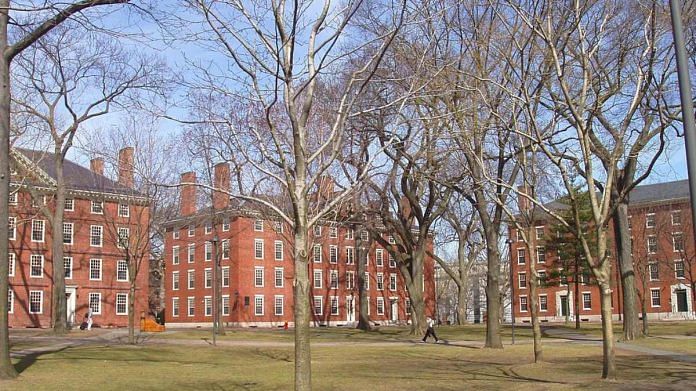New York: They’re called Confucius Institutes, and for about 15 years these centers for Chinese language and cultural education have proliferated at U.S. universities, drawing students eager to learn about the country.
Now, the Chinese government-funded organizations face more scrutiny as U.S.-China tensions over intellectual property and potential espionage intensify.
The arrest this week of a Harvard University chemistry professor for lying about his ties to China is shedding renewed light on the institutes and ratcheting up pressure for colleges to close them.
“This is a blatant attempt by the Chinese to infiltrate and both steal American ideas and co-opt students, but also to monitor and influence the behavior of Chinese students who are studying here in America,” Massachusetts Representative Seth Moulton said in an interview Wednesday.
Confucius Closings
| School | Decision Date |
|---|---|
| University of Missouri | January |
| University of Michigan | 2018 |
| Texas A&M | 2018 |
| Penn State | 2014 |
| University of Chicago | 2014 |
Source: National Assn of Scholars, Bloomberg
Moulton, a Democrat, plans to introduce legislation that he said would better protect U.S. technology from being stolen by researchers including academics who are being paid by China or other adversaries.
There are about 80 Confucius Institutes at U.S. colleges, including Stanford University and Savannah State University in Georgia, according to the National Association of Scholars, a non-partisan research group that has studied the centers and opposes them.
The institutes teach humanities classes in Chinese culture and language and steer clear of history, politics and current affairs, according to the Confucius Institute U.S. Center website. They are run by their host university faculty and administrators with assistance from faculty at their Chinese partner universities.
Of the 550 Confucius Institutes around the world, the largest concentration is in the U.S., according to the Washington-based non-profit.
“Some of the criticism is baseless,” said Gao Qing, executive director of the organization. “These are language teachers, people who are furthest away from any intellectual property or espionage activity.”
The Scholars association opposes them because it says their funding lacks transparency and topics sensitive to China are off limits.
“As it stands now, they’re more of a threat than they are a friend,” said Chance Layton, a spokesman for the group.
Some schools shut the institutes after passage of the National Defense Authorization Act, legislation that partly seeks to police China on a range of matters. One provision prohibits the U.S. Defense Department from funding Chinese language programs at colleges with the institutes unless schools obtain a waiver.
More recently, universities have come under pressure from U.S. lawmakers. Senator Marco Rubio, a Florida Republican, has urged schools in his state to terminate their agreements with Confucius Institutes.
Moulton sent letters in 2018 to several schools demanding that they close their institutes or not allow them on campus. In his state, the University of Massachusetts/Boston closed its center in January 2019.
Other universities have backed their Confucius Institutes. Tufts University said in October 2019 it would keep its center open after a review determined there was no evidence of suppression of academic freedom or censorship at the school.
Also read: US arrests Harvard prof as it steps up fight against Chinese ‘economic espionage’



